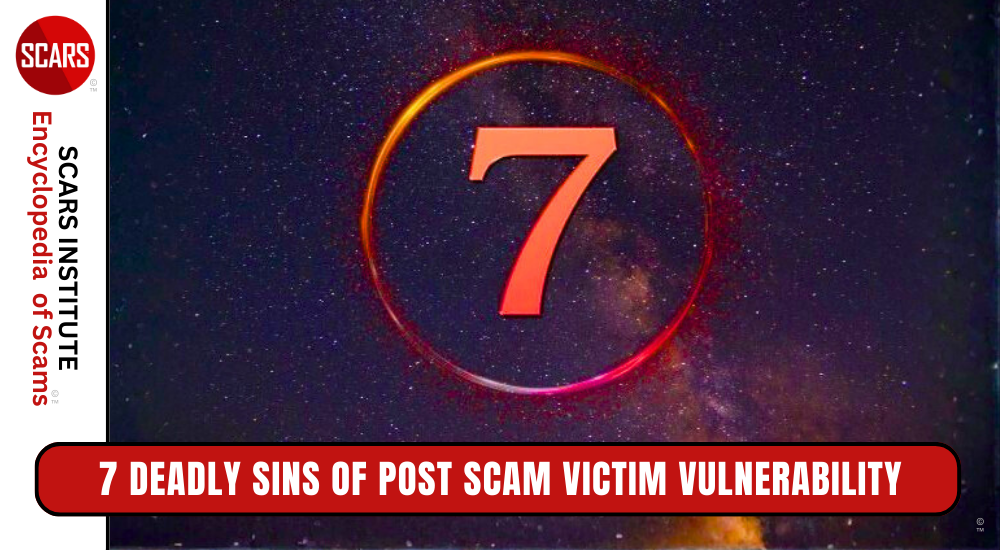
SCARS Institute’s Encyclopedia of Scams™ Published Continuously for 25 Years

Unmasking the Scam Call Centers in Mexico: Battling a Global Fraud Hub
Introduction to Scam Call Centers in Mexico
In recent years, Mexico has gained notoriety as a global hub for scam call centers, where fraudsters employ deceptive tactics to target individuals around the world. Operating from bustling cities and often hidden in plain sight, these call centers have become a significant concern for law enforcement agencies and individuals falling victim to their schemes. This article delves into the workings of scam call centers in Mexico, shedding light on their operations, the impact on victims, and the efforts to combat this growing menace.
Scam call centers in Mexico have become a major problem in recent years. These call centers target people all over the world, but they often focus on Latin America, American and Canadian citizens, as well as Latinos living abroad.
The scammers use a variety of tactics to defraud their victims, including:
- Preying on the elderly: Scammers often target the elderly, who may be more vulnerable to their tricks. They may pose as government officials or representatives of legitimate businesses, and they may use high-pressure sales tactics to pressure their victims into giving them money.
- Using fake caller ID: Scammers often use fake caller ID to make it look like they are calling from a legitimate business or government agency. This can make it more difficult for victims to identify the scam and hang up.
- Creating a sense of urgency: Scammers often create a sense of urgency, telling their victims that they need to act quickly or they will lose out on a great deal. This can make victims more likely to make impulsive decisions and give the scammers money.
The Rise of Scam Call Centers
Scam call centers in Mexico have witnessed a surge in recent years, fueled by factors such as technological advancements, a large bilingual population, and relative ease of setting up operations. These call centers are typically organized, sophisticated, and staffed with trained individuals who are well-versed in various fraudulent schemes.
The proliferation of scam call centers in Mexico can be attributed to various factors, including the country’s large bilingual population, relatively affordable telecommunications infrastructure, and the availability of skilled individuals proficient in call center operations. These factors make it an attractive location for fraudulent activities, as scammers can easily target victims globally while benefiting from the country’s resources and infrastructure – not to mention government corruption.
While organized crime groups, including Mexican cartels, have been involved in a wide range of illegal activities, such as drug trafficking, human smuggling, and extortion, they were only more recently involved in scam call centers. However, most of these call centers appear to be operated by independent criminal networks or individuals seeking to profit from fraudulent schemes.
However, it is important to recognize that criminal networks are adaptable and may explore new avenues for illicit activities. As the scam call center industry continues to thrive in Mexico, organized crime cartels will only expand their involvement in these operations. It is important to note that the cartels that seem to be involved are Central Mexicans and not those so heavily involved in drugs in the north.
Types of Scams and Tactics
Scammers in Mexican call centers employ a wide range of fraudulent schemes, targeting individuals globally. Some prevalent scams include:
- Tech Support Scams: Fraudsters posing as tech support representatives contact victims, claiming their computers are infected with malware or facing technical issues. They trick victims into granting remote access to their devices, enabling them to steal personal information or extort money for fake services.
- IRS Impersonation Scams: Scammers impersonate Internal Revenue Service (IRS) officials, contacting victims and demanding immediate payment for alleged tax violations or unpaid taxes. They use fear and intimidation to coerce victims into making payments, often through wire transfers or prepaid cards.
- Romance Scams: Call center agents assume false identities, often posing as love interests seeking online relationships. They establish emotional connections with victims and exploit their trust to extract money, gifts, or personal information.
- Lottery and Sweepstakes Scams: Fraudsters inform victims that they have won a lottery or sweepstakes prize, but must pay taxes or fees to claim it. Victims are persuaded to send money, unaware that there is no actual prize and the scammers pocket the funds.
- Immigration scams: These scammers will call Latinos in the U.S. & Canada and claim that they are in danger of being deported. They will then offer to help them stay in the country if they pay them a fee.
- Government impersonation scams: These scammers will call victims and claim to be from a government agency. They will then ask the victim to provide personal information or pay a fine.
The Impact on Victims
The impact of falling victim to scam call centers can be devastating. Victims often suffer financial losses, emotional distress, and damage to their personal and financial reputation. For some, the consequences extend beyond monetary losses, leading to feelings of betrayal, shame, and vulnerability.
For more information about the impacts of scams on victims read this! Impact of Crime Victimization
Efforts to Combat Scam Call Centers
Recognizing the threat posed by scam call centers, Mexican authorities, in collaboration with international law enforcement agencies, have intensified efforts to dismantle these operations. Joint investigations, raids, and arrests have led to significant disruptions of call center networks. Increased public awareness campaigns, education, and outreach initiatives have also been implemented to equip individuals with the knowledge to identify and avoid falling victim to scams.
Efforts by Mexican law enforcement agencies, in collaboration with international partners, are primarily focused on combating drug trafficking and other major criminal activities associated with cartels. Nevertheless, tackling fraud and scam call centers remains an ongoing challenge, and authorities continue to prioritize these investigations to protect individuals (including Mexicans) from falling victim to fraudulent schemes.
The Mexican government is attacking the problem of scam call centers in Mexico in a number of ways, including:
- Working with the United States government to share information and coordinate enforcement actions. In April 2023, the U.S. Treasury Department designated a network of fraudulent call center businesses in Mexico as a “significant transnational criminal organization” (TCO). This designation allows the U.S. government to take action against the businesses and their operators, including freezing their assets and denying them entry into the United States.
- Launching a public awareness campaign to educate people about the dangers of scam calls. The campaign, which is being conducted by the Mexican Federal Consumer Protection Agency (PROFECO), includes a website, a toll-free number, and public service announcements.
- Strengthening the laws and regulations governing call centers. In 2022, the Mexican Congress passed a law that imposes stricter penalties for operating a scam call center. The law also requires call centers to register with the government and to comply with a number of other regulations.
- Enforcing the laws and regulations governing call centers. The Mexican government is working to increase the number of inspectors who are responsible for enforcing the laws and regulations governing call centers. The government is also working to improve the coordination between different law enforcement agencies so that they can more effectively investigate and prosecute scam call centers.
These are just some of the ways that the Mexican government is attacking the problem of scam call centers in Mexico. The government is committed to addressing this problem and to protecting the public from these scams.
Tips To Avoid These Scams
While authorities work to combat scam call centers, individuals can take steps to protect themselves
If you receive a call from a number that you don’t recognize, be very careful.
If the caller asks for personal information, don’t give it to them. And if they ask you to pay money do not.
IN ALL CASES, HANG UP IMMEDIATELY!
Here are some tips to help you avoid falling victim to a scam call center:
- Don’t answer calls from numbers you don’t recognize. If you do answer, don’t give out any personal information.
- Be suspicious of any caller who asks for money. Legitimate businesses will never ask you to pay for something over the phone.
- If you’re not sure if a call is legitimate, hang up and call the company back using a number you find on their website.
- Be aware of the common scams that are perpetrated by scam call centers. If you think you’re being scammed, hang up immediately.
- Be skeptical of unsolicited calls: Exercise caution when receiving calls from unknown numbers, particularly those making urgent demands or requesting personal information.
- Verify and authenticate: Legitimate organizations will not demand immediate payment or personal information over the phone. Verify the caller’s identity independently using official contact information.
- Guard personal information: Avoid sharing sensitive details such as bank account numbers, social security numbers, or passwords over the phone, unless you initiated the call and trust the recipient.
- Report incidents: If you have fallen victim to a scam call center or suspect fraudulent activity, report the incident to your local law enforcement and relevant regulatory authorities.
By being aware of the dangers of scam calls and taking steps to protect themselves, individuals can help to reduce the number of victims of these scams.
Reporting These Scams
If you did not lose money, then report them online to the U.S. Federal Trade Commission here: https://reportfraud.ftc.gov/#/?orgcode=SCARS
If you did pay them, then you are a risk and YOU MUST REPORT THIS CRIME. Go here to find where you should report: Reporting Scams Worldwide Make sure you report this crime to your local police to, in case there are any follow on incidents they will be informed and better able to respond.
In Mexico: report the crime to your local police first then to the Policía Cibernética, Secretaría de Seguridad
Conclusion
Scam call centers in Mexico continue to pose a significant challenge, exploiting technology and human vulnerability to perpetrate fraud on a global scale. By raising awareness, enhancing collaboration among international agencies, and equipping individuals with knowledge, we can collectively combat these scams
-/ 30 /-
What do you think about this?
Please share your thoughts in a comment below!
Table of Contents
- Mexican Cartels Are Expanding With Hundreds Of Scam Call Centers
- Unmasking the Scam Call Centers in Mexico: Battling a Global Fraud Hub
- Introduction to Scam Call Centers in Mexico
- The Rise of Scam Call Centers
- Types of Scams and Tactics
- The Impact on Victims
- Efforts to Combat Scam Call Centers
- Tips To Avoid These Scams
- Reporting These Scams
- Conclusion
LEAVE A COMMENT?
Recent Comments
On Other Articles
- velma faile on An Essay on Justice and Money Recovery – 2026: “you are so right I accidentally clicked on online justice I signed an agreement for 12k upfront but cd only…” Feb 3, 08:16
- on The SCARS Institute Top 50 Celebrity Impersonation Scams – 2025: “Quora has had visits from scammers pretending to be Keanu Reeves and Paul McCartney in 2025 and 2026.” Jan 27, 17:45
- on Scam Victims Should Limit Their Exposure To Scam News & Scammer Photos: “I used to look at scammers photos all the time; however, I don’t feel the need to do it anymore.…” Jan 26, 23:19
- on After A Scam, No One Can Tell You How You Will React: “This article was very informative, my scams happened 5 years ago; however, l do remember several of those emotions and/or…” Jan 23, 17:17
- on Situational Awareness and How Trauma Makes Scam Victims Less Safe – 2024: “I need to be more observant and I am practicing situational awareness. I’m saving this article to remind me of…” Jan 21, 22:55
- on Scam Grooming: Finding Common Interests: “I was definitely groomed by the scammer. My Facebook profile lists me as single and if research is done on…” Jan 21, 14:23
- on KNOW YOUR ENEMY: Tessa Fowler – A Favorite Of African Scammers: “There is a very obvious catfish profile of this girl in Instagram by the name Olivia022. There’s only 2 photos…” Jan 20, 16:24
- on Subliminal Messaging: A New Scammer’s Tool Against Scam Victims – 2024: “I was scammed over the phone ..he was wanting me to go to the bank and get money .. and…” Jan 19, 02:58
- on Scam Grooming: Using Persuasion To Establish Rapport: “The scammer(s) applied several of the techniques discussed in this article. There were several “financial struggles” that the scammer told…” Jan 16, 14:56
ARTICLE META
Important Information for New Scam Victims
- Please visit www.ScamVictimsSupport.org – a SCARS Website for New Scam Victims & Sextortion Victims
- Enroll in FREE SCARS Scam Survivor’s School now at www.SCARSeducation.org
- Please visit www.ScamPsychology.org – to more fully understand the psychological concepts involved in scams and scam victim recovery
If you are looking for local trauma counselors please visit counseling.AgainstScams.org or join SCARS for our counseling/therapy benefit: membership.AgainstScams.org
If you need to speak with someone now, you can dial 988 or find phone numbers for crisis hotlines all around the world here: www.opencounseling.com/suicide-hotlines
A Note About Labeling!
We often use the term ‘scam victim’ in our articles, but this is a convenience to help those searching for information in search engines like Google. It is just a convenience and has no deeper meaning. If you have come through such an experience, YOU are a Survivor! It was not your fault. You are not alone! Axios!
A Question of Trust
At the SCARS Institute, we invite you to do your own research on the topics we speak about and publish, Our team investigates the subject being discussed, especially when it comes to understanding the scam victims-survivors experience. You can do Google searches but in many cases, you will have to wade through scientific papers and studies. However, remember that biases and perspectives matter and influence the outcome. Regardless, we encourage you to explore these topics as thoroughly as you can for your own awareness.
Statement About Victim Blaming
Some of our articles discuss various aspects of victims. This is both about better understanding victims (the science of victimology) and their behaviors and psychology. This helps us to educate victims/survivors about why these crimes happened and to not blame themselves, better develop recovery programs, and to help victims avoid scams in the future. At times this may sound like blaming the victim, but it does not blame scam victims, we are simply explaining the hows and whys of the experience victims have.
These articles, about the Psychology of Scams or Victim Psychology – meaning that all humans have psychological or cognitive characteristics in common that can either be exploited or work against us – help us all to understand the unique challenges victims face before, during, and after scams, fraud, or cybercrimes. These sometimes talk about some of the vulnerabilities the scammers exploit. Victims rarely have control of them or are even aware of them, until something like a scam happens and then they can learn how their mind works and how to overcome these mechanisms.
Articles like these help victims and others understand these processes and how to help prevent them from being exploited again or to help them recover more easily by understanding their post-scam behaviors. Learn more about the Psychology of Scams at www.ScamPsychology.org
Psychology Disclaimer:
All articles about psychology and the human brain on this website are for information & education only
The information provided in this article is intended for educational and self-help purposes only and should not be construed as a substitute for professional therapy or counseling.
While any self-help techniques outlined herein may be beneficial for scam victims seeking to recover from their experience and move towards recovery, it is important to consult with a qualified mental health professional before initiating any course of action. Each individual’s experience and needs are unique, and what works for one person may not be suitable for another.
Additionally, any approach may not be appropriate for individuals with certain pre-existing mental health conditions or trauma histories. It is advisable to seek guidance from a licensed therapist or counselor who can provide personalized support, guidance, and treatment tailored to your specific needs.
If you are experiencing significant distress or emotional difficulties related to a scam or other traumatic event, please consult your doctor or mental health provider for appropriate care and support.
Also read our SCARS Institute Statement about Professional Care for Scam Victims – click here to go to our ScamsNOW.com website.
















Thank you for your comment. You may receive an email to follow up. We never share your data with marketers.